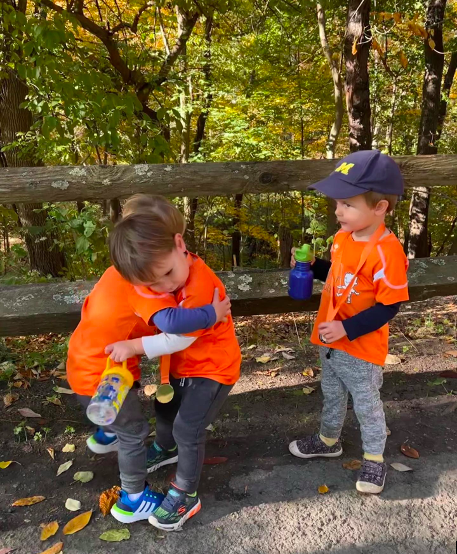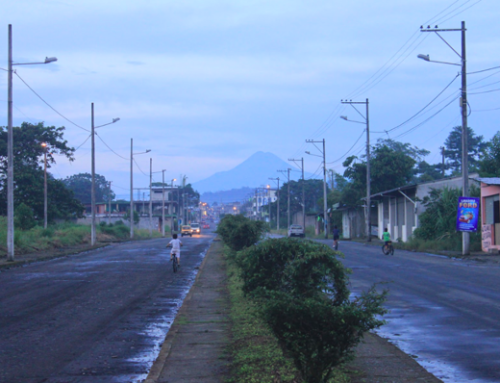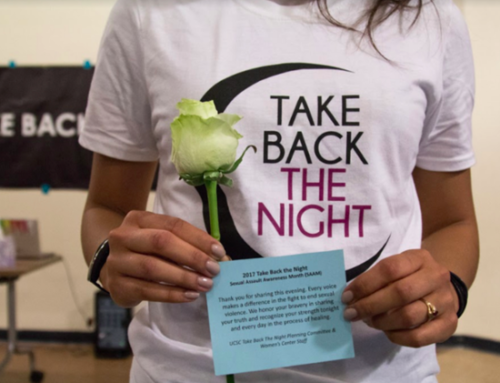In the three years that I have been a mother in the United States, I have observed two sorts of reactions to toddlers hugging. The first and more common reaction from parental onlookers is to dissolve into “Awww,” “Aren’t they so sweet?” or “That melts my heart!” The second, less common reaction is to hover closely, scrutinizing facial reactions, and body language to verify, “Did he want that hug, honey?” or “Love, you’ve got to ask before hugging.” Rather than affirm displays of affection with cooing and praise, the second reaction reflects a concern with teaching children the importance of mutuality and consent from a young age. Parents and caregivers who engage in such practices have two goals. First, they seek to prevent their children from being sexually victimized or victimizing others. Many come to this parenting approach with their own histories of sexual abuse and hope to prevent their children from enduring the same suffering. Second, they see this kind of affective attentiveness as a way of rescripting the practices that enable sexual violence. That is, they strive to care for their children in ways that might unsettle rape culture in their communities and beyond. But doing so can entail daily confrontations over what are, in all likelihood, well-meaning acts of generosity, tenderness, and affection. In this piece, I turn to a distinctly codified and commodified form of this parenting approach to think through care as a form of scripted confrontation.

Three white boys, aged two years old, part ways after soccer practice. Two of them embrace, while the third, who refused to hug, stands off to the side, looking on. Photo taken by Shea O’Sullivan and used with permission of the boys’ parents.”
The first two years of my son’s life coincided with the onset of the COVID pandemic and the social distancing that came with it. For better or worse, I plumbed the majority of my parenting wisdom from the Internet, where broad sets of values have a way of being distilled down to their most doctrinaire forms. In virtual parenting communities, I learned of a cottage industry of entrepreneur-cum-mothers who produce parenting advice for preventing child sexual abuse. Their offerings are taken up by a global following of enthusiastic caregivers. I will refer to this doctrine and the sets of practices it informs as “Boundary Parenting” for the emphasis it places on boundaries (physical and psychic) as the fundamental locus of (sexual) harm and well-being. The fieldwork upon which this piece is based took place in the digital worlds of Boundary Parenting.
Readers may be familiar with this movement through key pieces of parenting advice that periodically percolate into mainstream consciousness. Around holidays, for example, major news outlets carry op-eds admonishing parents to ensure visiting grandmothers request permission before giving their grandchildren hugs. This scenario looms large in Boundary Parenting pedagogy. The idea is not that Grandma poses a literal threat, but that in moments in which children are compelled to give physical affection, they are learning the lesson that they do not have control of their bodies. In this way, Boundary Parenting departs from earlier generations of sexual abuse-prevention messaging focused on threats of “stranger danger” by instead urging parents to help children assert, defend, and honor the boundaries between themselves and others—especially those trusted adults who are statistically far more likely to commit such abuse. For those who espouse its virtues, Boundary Parenting is not meant to be fear-based. Rather, it is a holistic parenting approach that shapes every moment of a child’s life around procedural forms of consent. Or, as one child safety educator instructs: parents should practice these skills with children “when the stakes are low, so children are prepared when the stakes are high.”
By implying that victims’ conformity to gendered behavioral tropes facilitates their own victimization (Marcus 1992, 389), the notion that sexual violence might arise from “cultural scripts” fits uncomfortably with feminist theorizations of rape (Mardorossian 2002). To be clear, Boundary Parenting wholeheartedly rejects the idea that children are responsible for abuse. Nevertheless, it embraces rescripting as a means of preventing sexual violence, sidestepping the charge of victim-blaming by placing responsibility for rescripting squarely on the shoulders of parents.
Marie1 began the first day of the 5-day intensive synchronous Zoom workshop unpacking the concept of boundaries and how challenging it can be to shore them up on behalf of children:
People have difficulty vocalizing [boundaries] on behalf of their kids, particularly with someone who is nice. I think it would be easier if it were a stranger or someone you didn’t totally trust. Then your Mamma Bear instincts would kick in. But when we’re trying to be polite, we struggle with how to say it. You want to make sure that you’re not coming off as a crazy person […or…] as really aggressive… We have the right to protect our kids. We have the right to set boundaries on their behalf and we need to know that’s okay. We have that right as parents and we shouldn’t feel the judgment of other people. They are our kids and it is our responsibility to protect them.
With twenty women from the US, Canada, and Europe in attendance, she contrasted two stories of how she had dealt with moments when adults crossed boundaries with her children. In the first, her husband’s friend tried to tickle her son. Not necessarily with malintent; the man had a habit of relating to children in this fashion. Marie thought her son did not want to be tickled, but didn’t know how to respond in the moment. Unable to support her son’s refusal, she drew her son onto her lap, getting him out of the man’s reach.
Marie’s second story was a corrective to the first. In it, an old friend she had not seen in a long time met her youngest son for the first time. The friend offered to shake her son’s hand, but the three-year-old hid behind his mother’s legs. In a sing-song voice, the woman replied, “come oooon! If you don’t shake my hand, I’m going to have to tickle you,” wiggling her fingers in his direction. At this point, Marie was well practiced in setting boundaries and confident in her response: “Actually, we practice consent-touch only, so you can’t just tickle him.” Marie’s friend took a moment to absorb this and then replied, nodding, “Oh. Yeah. That’s smart.” Marie reenacts this second scenario as a Reel on her Instagram account. She explained to her workshop participants that the Reel, which had more than 9000 likes as of a February 2023 viewing, had achieved viral popularity because it offered a compelling demonstration of how to have these conversations.
There is a lot to unpack in this extended vignette: the easy commensuration of a child’s social unease with threat, the narrow theorization of power along an axis of age (but not gender, race, class, disability and nationality), the role of the market in effecting political change, liberal notions of rights rooted in privacy. What I focus on here is the role of proceduralized scripts in helping parents prepare for uncomfortable confrontations over touch. While Marie’s second story instilled hope that some people will respond to body safety rules with admiration, child safety educators do not mince words about the kind of judgments parents who practice Boundary Parenting might expect: “crazy,” “aggressive,” as Marie anticipates, as well as overprotective, rude, and helicopter-parenting. One workshop participant contributed via chat: “Grandparents seem nervous I am taking this [course], like I will accuse them of something.”
Given this range of responses, parents who engage in these practices must overcome the discomfort of confronting others who in all likelihood see themselves as being engaged in mundane acts of sociability. Through worksheets, role plays, skits, and demonstrations, Boundary Parenting educators help parents overcome this discomfort by helping them to script confrontations. Educators provide parent-customers with template letters that ask individuals and institutions to agree to adhere to a child’s body safety rules. These are tailored for daycare facilities, medical providers, sports coaches, and sleepover invitations. Marie provides her customers with links to pre-recorded videos of herself, which explain the importance of observing physical boundaries with children, to be circulated to potential caregivers. Educators routinely volunteer themselves as an “excuse” or a “scapegoat” for initiating such awkward conversations: “Feel free to drop my name and say, ‘I just learned this interesting thing that I’d never thought of before.’”
While Boundary Parenting educators do their best to alleviate the burden of these conversations, it is nonetheless a burden parents are asked to endure. As one speaker at a five-day virtual summit on child safety put it, “We don’t have the right to say we are too uncomfortable to parent.” In moments such as these, confrontations about consensual touch are moralized as constitutive of good parenting. If these confrontations enact a form of care for one’s children and perhaps even for society at large, the scripting of these confrontations amounts to self-care. It is a practice that allows parents to endure unsettling interpersonal encounters in the short-term in service of unsettling the norms that underwrite sexual violence in the long-term.
Notes
[1] Pseudonym used per ethnographic convention and IRB guidance.
References
Marcus, Sharon. 1992. “Fighting Bodies, Fighting Words: A Theory and Politics of Rape Prevention.” In Feminists Theorize the Political, edited by Judith Butler and Joan W. Scott, 385–403. New York: Routledge.
Mardorossian, Carine M. 2002. “Toward a New Feminist Theory of Rape.” Signs 27 (3).
Sonia Rupcic is a Postdoctoral Fellow at the Population Studies and Training Center at Brown University. She earned her PhD in Anthropology from the University of Michigan in 2020. She is interested in how legal practices, broadly understood, shape gendered and racialized categories of wrongdoing. Her book project examines how South African survivors of sexual violence navigate a postcolonial landscape of legal pluralism in search of justice and with what effect for how they understand what they have experienced. Her work has appeared in Ethnography, Comparative Studies in Society and History and is forthcoming in American Anthropologist. Her new research explores the digital worlds of a boundary-focused parenting approach that has the goal of preventing child sexual abuse.




